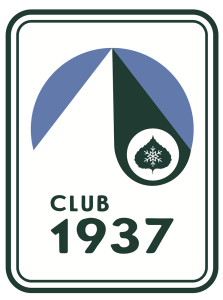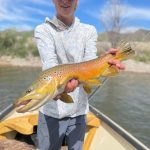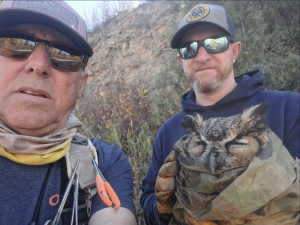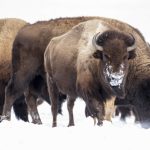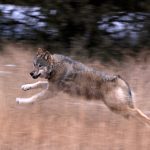Saddle Sore: May your next pasture be kind

Tony Vagneur/Courtesy photo
It’s my first stop every morning, to check the horses. Through the early morning fog and icy temperature, there he was at 7 a.m., lying on the ground as if taking a nap. But his ears perked up as soon as he heard my Jeep on the soft gravel, and without even stopping, I turned around and pulled out of the drive.
Pete, a worthy member of the herd, did his work without complaint — never kicked, bit, or bothered anyone, man or horse. And at a young age, this year he was afflicted with ringbone. Suffice it to say, he was crippled in the front, enough that he was unusable but could still get around the pasture, some days at a run, other days in obvious pain. I’d never seen him lie down before, especially on cold ground, and immediately figured his front legs must be crying for a rest.
By now, he’d lifted his head up, and my offering of “Please don’t get up” must have worked, for as I was driving away, his head went back to the earth. He’s the first horse to come up to me when I enter the pasture — he knows I have a cookie for him in my pocket. When I leave him behind, he always seems to give a look of, “Hey, when is it my turn?” Don’t get up, old friend; your legs are appreciating the rest.
We were going to send him to the horse sale this spring, but my riding partner, Deborah, pointed out that maybe we should keep him through the summer — give him one last good season with friends before he left for pastures unknown. We had the grass, so we kept him as a companion for another packhorse, Smoke, when he needed someone to keep him company.
We always talked to him, loved on him when we were catching the others, and, fairly soon, Deborah had dubbed him ‘Pete the Packhorse,’ a name that stuck fast. “We could write a children’s book about him,” she said — how, in some way, he saved the children, or the valley, or his family from an impending disaster. Sort of like Rudolph, just not in the same genre.
What a good horse he’s been. Registered as Vibrant Star Fire, solid palomino. Turned 12 on Sept. 18. About three years ago, Niki, John Burtard’s daughter, said to take and use him for the summer. If he worked out, we could make a deal. Bought him from John after that summer, shortly before John died — had John’s brand on the left front shoulder, so we could always be sure John’s spirit was riding with us.
This fall, if we can’t find another home for him, Pete will go to the sale barn. I tell myself it’s part of the cycle, the way ranch life works. Still, when I walk out in the morning and see him standing there — John’s brand shining faintly in the sun — I know I’ll miss that good horse.
Sometimes I think horses like Pete understand more than we give them credit for. He’s seen me come through the gate a thousand mornings — watched the seasons change, the new horses come and go, the rhythm of chores and weather and work. Maybe that’s part of why he still perks his ears when he hears the Jeep. It’s not just for the cookie — it’s the routine, the shared time, the unspoken bond between man and horse that doesn’t ask for much, only respect and a little kindness. You can’t help but admire that kind of loyalty.
It has been said that the outside of a horse is good for the inside of a man; I also believe that the outside of a man is good for the inside of a horse. Maybe that’s what makes the connection so special.
Tomorrow morning, I’ll still stop by first thing, anticipation in my breast, to see if he’s up and about. Maybe he’ll look at me with that same steady gaze, waiting for his cookie. And maybe I’ll tell him what I’ve been thinking — that he’s been a good horse, one of the best, and I hope the next pasture is kind.
Tony Vagneur writes here on Saturdays and welcomes your comments at ajv@sopris.net.
Tony Vagneur writes here on Saturdays and welcomes your comments at ajv@sopris.net.
